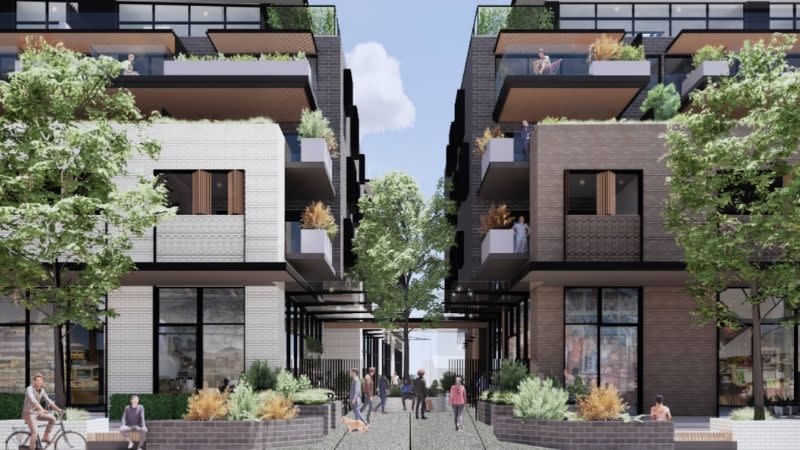Developer’s $27m Bid for Seaside Shop-Top Housing

Plans for a $27-million shop top-housing development in a sleepy coastal area south of Sydney could spell a new era for the town.
The demolition of existing two-storey commercial buildings at 29-33 Market Street in Merimbula would make way for three five-storey buildings, creating a mixed-use development that would “re-establish Market Street as the retail and commercial hub”, according to planning documents.
The developer, Robert Green of Spungrow Development, has owned a portion of the 4000sq m site for about 40 years and mooted a retail development as early as 2005.
But the planned development has hit multiple hurdles along the way. A development application proposing building heights two storeys higher than allowed under planning controls has been referred to the NSW Planning Minister for gateway determination and will then go on exhibition.
Bega Valley Shire Council reportedly invited site specific planning applications.
The Squillace Architects-designed proposal is for ground floor retail, commercial space on the second floor and then three floors of apartments above this, for a total of 52 apartments across the three buildings.
It also includes provisions for 114 car parking spaces and a laneway to help activate the site and allow pedestrian traffic through to the lake.
Residents of Merimbula have opposed previous iterations of developments for the site, claiming it would erode the charm of the small town.
According to planning documents the site is a “rare opportunity to create a gateway to the Merimbula CBD and reflect the future desired character of the retail strip”.

“The placement of the site on the western side of Market Street enables the site to transition from the foreshore, substantiating an increase in height and heralding the site as a landmark building,” the design report said.
The built form includes setbacks to help break up the massing while at ground level pedestrianised laneways would be included to drive foot traffic.
Shop-top housing is a trend that has grown in popularity over the past two years, particularly in inner-city suburbs. But out in the regions it is less established.
Convenience-based apartment stock has chalked up an average 16 per cent premium on prices, compared to suburb averages in the cities.
It offers an alternative to more traditional housing types and some regional councils have started to encourage this style of development to cater for booming populations.
Lismore City Council in northern NSW has been pushing for these developments to add to the vibrancy of the CBD and to renovate disused floor space above shops and offices.














